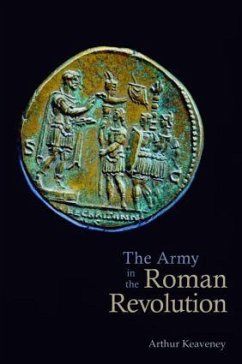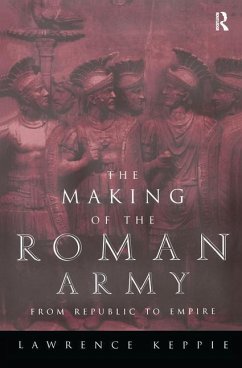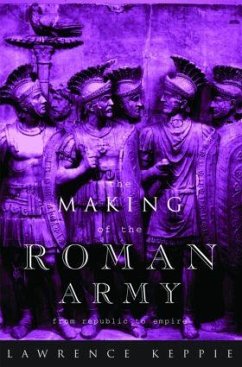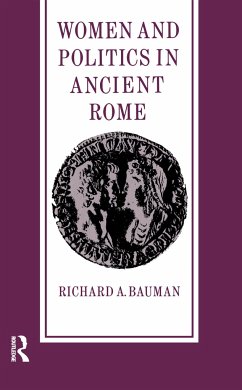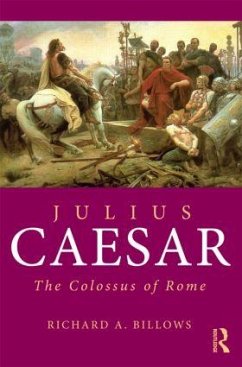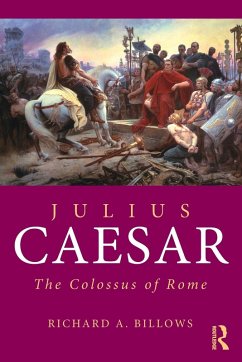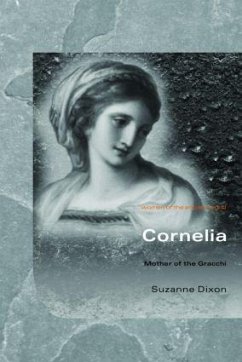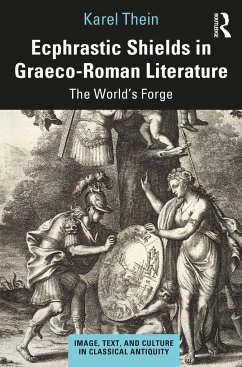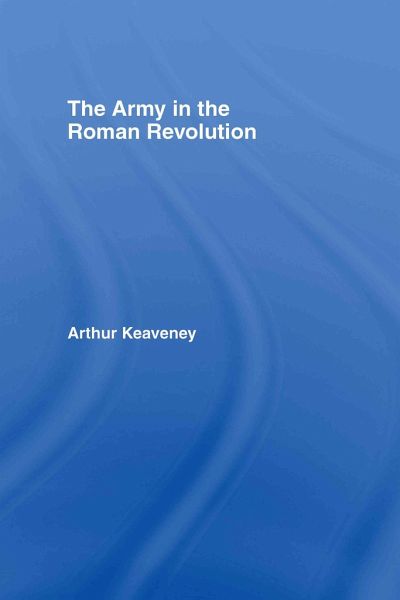
The Army in the Roman Revolution
Versandkostenfrei!
Versandfertig in 1-2 Wochen
168,99 €
inkl. MwSt.
Weitere Ausgaben:

PAYBACK Punkte
84 °P sammeln!
The Roman Revolution is one of the most momentous periods of change in history, in which an imperial but quasidemocratic power changed into an autocracy. This book studies the way the Roman army changed in the last eighty years of the Republic, so that an army of imperial conquest became transformed into a set of rival personal armies under the control of the triumvirs. It emphasizes the development of what has often been regarded as a static monolithic institution, and its centrality to political change.





